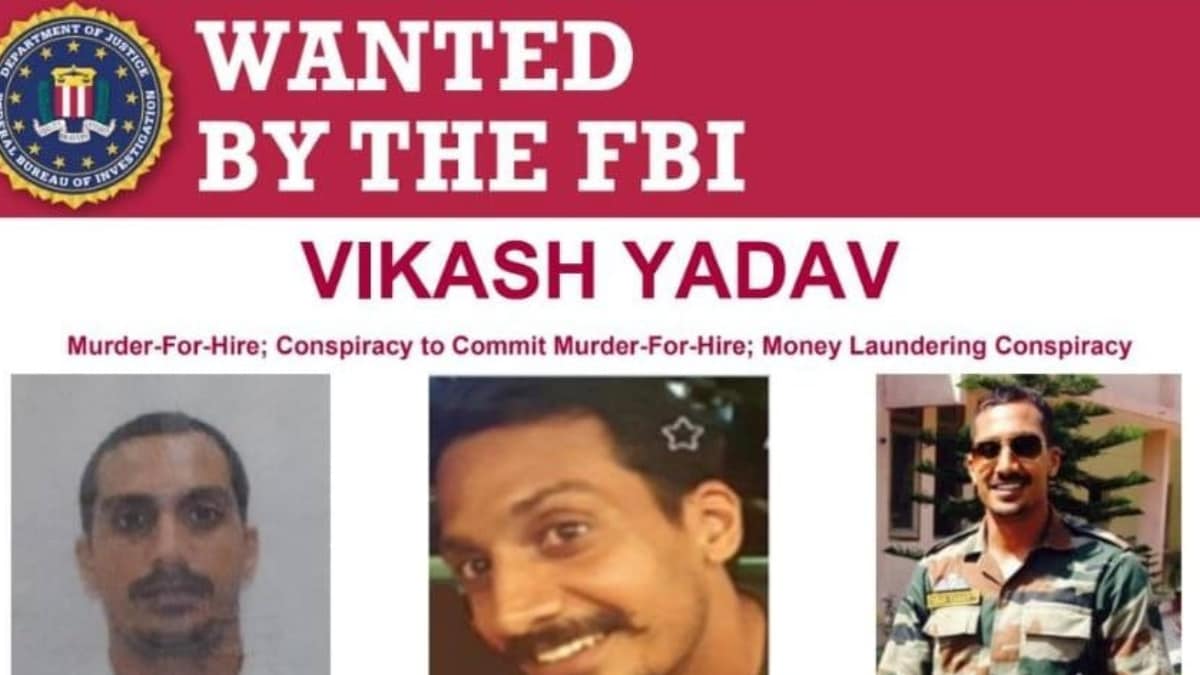Vikash Yadav, an Indian national, is at the center of a complex case involving a foiled assassination plot in the US, an extortion case in India, and questions surrounding his past employment with the Indian government. The interwoven narratives highlight the intricacies of international cooperation in law enforcement and the challenges in verifying the backgrounds of individuals holding sensitive positions. This analysis will dissect the available information, focusing on the inconsistencies and ambiguities surrounding Yadav’s career and alleged activities.
Yadav’s Employment History: Discrepancies and Contradictions
Confirmation of Probation and Subsequent Denial of Employment
A November 2023 Central Administrative Tribunal (CAT) order confirmed Vikash Yadav’s probation with the Directorate General of Security (DGS) in the Cabinet Secretariat, effective from November 13, 2015. This seemingly confirms the US indictment’s claim that Yadav was employed by the Cabinet Secretariat. However, the Indian government has since stated that Yadav is no longer employed by them. This discrepancy raises critical questions about the accuracy of the government’s claim and the nature of Yadav’s role within the DGS. Further investigation is necessary to clarify the circumstances surrounding his departure from the government’s employ and the timing of his dismissal or resignation. The CAT order itself highlights only the successful completion of his probationary period, not providing any further context or reasons for his alleged later separation from service. The lack of transparency regarding this abrupt change in status creates reasonable skepticism.
Alleged Roles in Multiple Agencies
The US indictment paints a picture of Yadav holding significant positions within Indian security and intelligence agencies, including claims of roles within the Central Reserve Police Force (CRPF) as an “assistant commandant” and within the Cabinet Secretariat, with a senior field officer role focusing on security management and intelligence. These assertions require substantial verification. The Indian government’s current denial of any ongoing employment connection contradicts these claims and necessitates a thorough and independent investigation to establish the authenticity of Yadav’s claimed roles and responsibilities within these sensitive organizations. Inconsistencies between the official narrative and Yadav’s self-described employment history are notable and must be resolved.
The Extortion Case and Yadav’s Arrest
Kidnapping and Extortion Charges
Yadav was arrested by the Delhi Police Anti-Terror Wing Special Cell in an extortion case. He’s accused, along with an associate, of kidnapping and extorting money from a café owner, Raj Kumar Walia, under the guise of being an NIA agent. The police charge sheet outlines the alleged modus operandi, the physical assault on the victim, and the theft of money and deletion of CCTV footage. This criminal activity paints a drastically different picture than the official or self-declared profile of a security and intelligence officer, adding another layer of complexity to his situation. The details of the extortion and its connection – if any – to his alleged roles within government remain to be fully uncovered.
Discrepancies in Yadav’s Statements to the Police
Yadav’s own disclosures to the police regarding his father’s employment with the Border Security Force and his marriage in 2015 provide only a limited personal history, failing to address the more serious allegations or explain any involvement he may have in the broader security and intelligence realms. The minimal amount of information revealed serves as a lack of transparency and only contributes to increased suspicion. His past actions and activities are left almost entirely unknown, despite his involvement with highly sensitive government work. The gap in information adds fuel to the concerns regarding the lack of accountability surrounding individuals with access to sensitive information.
The US Assassination Plot Indictment
Allegations of Involvement in a Foiled Assassination Plot
The US indictment directly links Yadav to a planned assassination of Gurpatwant Singh Pannun, a Khalistani separatist. The indictment details Yadav’s alleged role in reconnaissance and planning, leveraging his supposed access to intelligence information and security positions. The indictment further complicates Yadav’s already questionable past and present. The fact that these events happened across international jurisdictions underlines the significant transnational security implications of the case.
The Interplay of National and International Jurisdictions
The case necessitates a high level of international collaboration between the US and Indian governments, emphasizing the intricacies and potential challenges of such joint investigations. Establishing jurisdiction, extraditing Yadav, and coordinating legal procedures across national borders present substantial logistical and legal obstacles that would require efficient international partnerships. Understanding the full ramifications and ramifications of cross-border justice is vital in bringing clarity and closure to the case.
Takeaways
The case of Vikash Yadav presents a multi-faceted puzzle. Inconsistencies in his claimed employment history, the serious criminal charges, and his alleged involvement in an international assassination plot demand a thorough, transparent, and jointly conducted investigation by Indian and US authorities. The apparent discrepancies between official statements, self-declared career details, and independently gathered information necessitate more investigation. International cooperation, focused investigation, and thorough fact-checking are essential to determine the full extent of Yadav’s activities and bring justice to all those affected. The outcome of this case will significantly impact public confidence in national security agencies and the effectiveness of transnational criminal justice.




